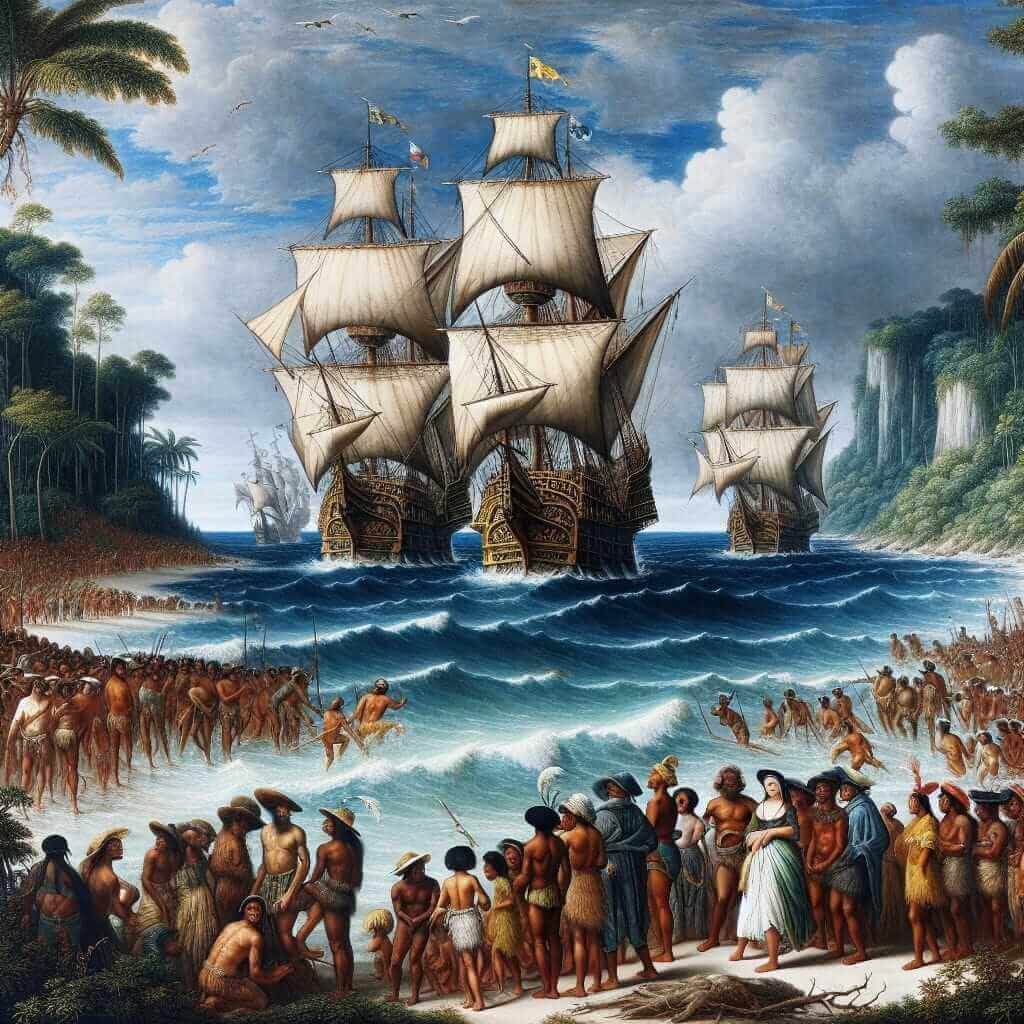The IELTS Reading section can be challenging, but with the right practice and understanding of commonly recurring themes, you can significantly improve your chances of scoring high. One such theme is the “Historical Significance of Global Exploration.” This topic has appeared frequently in previous IELTS exams due to its rich historical and cultural context. By familiarizing yourself with this subject, you can enhance your reading, comprehension, and analytical skills.
Main Content
IELTS Reading Practice Passage: Historical Significance of Global Exploration (Medium Text)
Global exploration, particularly during the Age of Discovery from the 15th to the 17th centuries, profoundly impacted world history. This period was marked by European explorers setting out across uncharted territories, driven by the desire for new trade routes, wealth, and knowledge. Figures such as Christopher Columbus, Ferdinand Magellan, and Vasco da Gama embarked on voyages that opened up new lands and reshaped global maps, economies, and societies.
The consequences of these explorations were far-reaching. Economically, they established new trade connections that facilitated the exchange of goods, ideas, and cultures. This, in turn, led to the rise of powerful trading nations and the establishment of colonies. Culturally, the encounters between different civilizations resulted in a blending of traditions, languages, and religions.
However, the era of global exploration was not without its negative impacts. The arrival of Europeans in the Americas, Africa, and Asia often brought suffering to indigenous populations through conquest, disease, and exploitation. The Atlantic slave trade is a grim reminder of the darker side of these ventures, highlighting the moral complexities of this period.

Today, the legacies of global exploration continue to influence contemporary society. The spread of languages such as Spanish, Portuguese, and English can be traced back to colonial times. Understanding the historical significance of global exploration provides critical insights into today’s geopolitical landscape, global trade dynamics, and cultural diversity.
Questions
Multiple Choice
-
Which period is referred to as the Age of Discovery?
- A. 12th to 14th centuries
- B. 15th to 17th centuries
- C. 18th to 20th centuries
- D. 10th to 12th centuries
-
What was a primary motive for European explorers during the Age of Discovery?
- A. Scientific research
- B. Establishing diplomatic relations
- C. Finding new trade routes
- D. Religious conversion
Matching Information
Match the following explorers with their contributions:
- Christopher Columbus
- A. First circumnavigation of the Earth
- Ferdinand Magellan
- B. Discovered the sea route to India
- Vasco da Gama
- C. Discovered the Americas
Identifying Information (True/False/Not Given)
- European exploration led to the immediate end of indigenous cultures in the Americas.
- The Atlantic slave trade stemmed from early exploration activities.
- Modern global languages have no connection to the Age of Discovery.
Answer Key
Multiple Choice
-
B
- Explanation: The Age of Discovery spanned from the 15th to the 17th centuries.
-
C
- Explanation: European explorers were primarily motivated by the desire to find new trade routes.
Matching Information
- C (Christopher Columbus – Discovered the Americas)
- A (Ferdinand Magellan – First circumnavigation of the Earth)
- B (Vasco da Gama – Discovered the sea route to India)
Identifying Information (True/False/Not Given)
-
False
- Explanation: While European exploration adversely affected indigenous cultures, it did not lead to their immediate end.
-
True
- Explanation: The Atlantic slave trade was a direct consequence of early exploration activities and colonization efforts.
-
False
- Explanation: Modern global languages such as Spanish, Portuguese, and English have roots traceable to the Age of Discovery and subsequent colonization.
Common Mistakes
- Misinterpreting Dates and Events: Pay close attention to specific periods and events mentioned in the passage to answer questions accurately.
- Overlooking Negative Impacts: Be sure to acknowledge both positive and negative consequences of historical events to get a balanced understanding.
Vocabulary
-
Circumnavigation (noun) /ˌsɜː.kəmˌnæv.ɪˈɡeɪ.ʃən/
- The action or process of sailing or otherwise traveling all the way around something, especially the world.
-
Conquest (noun) /ˈkɒŋ.kwɛst/
- The subjugation and assumption of control of a place or people by use of military force.
-
Exploitation (noun) /ˌek.splɔɪˈteɪ.ʃən/
- The action or fact of treating someone unfairly in order to benefit from their work.
Grammar Structure
-
Relative Clauses:
- Example: “The explorers, who ventured into unknown territories, significantly broadened the horizons of human knowledge.”
- Use: Adds extra information about the subject.
-
Passive Voice:
- Example: “Many indigenous populations were subjugated by European explorers.”
- Use: Focuses on the action rather than the subject performing the action.
Recommendations
To score high in the IELTS Reading section, it is crucial to practice with passages on various themes, including the historical significance of global exploration. Understanding both the content and question types will help you navigate the test more effectively. Regularly update your vocabulary and focus on the nuances of grammar to improve your overall comprehension and interpretation skills.
Internal links for further reading on related topics:
- Read about The Importance of Preserving Cultural Heritage
- Explore how The Influence of Technology on Cultural Preservation can be linked to historical explorations.
Remember, consistent practice and a deep understanding of the context will pave the way for success in your IELTS Reading exam. Good luck!